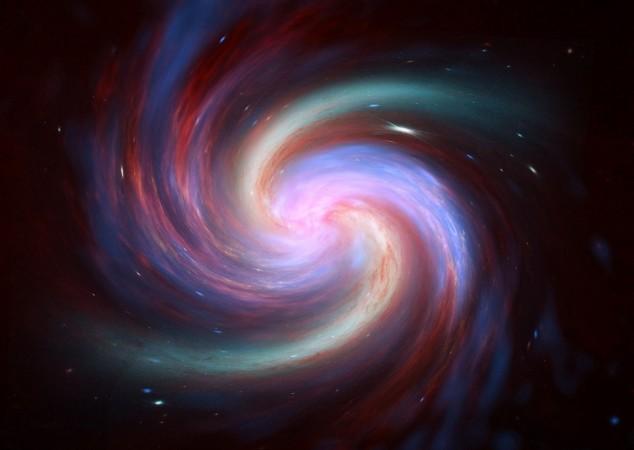
Until now, scientists believe that the universe in which the Milky Way exists had formed billions of years ago after a Big Bang. The universe's trait of singularity is one of the main reason that substantiates this theory, but now, a team of experimental scientists has suggested that black holes also shares this singularity trait. As per these scientists, the universe exists beyond the event horizon of a huge higher dimensional black hole that might have present in the cosmos since the beginning of time.
This new research conducted by a team of radical astrophysicists at Canada's University of Waterloo suggested that we might be living in a four-dimensional black hole which was formed by the collapse of a five-dimensional star.
''This was an idea that came up around four years ago with Niayesh Afshordi, another professor at Waterloo. The basic idea was that maybe the singularity of the universe is like the singularity at the centre of a black hole. The idea was in some sense motivated by trying to unify the notion of singularity, or what is incompleteness in general relativity between black holes and cosmology. And so out of that came the idea that the Big Bang would be analogous to the formation of a black hole, but kind of in reverse," said Robert Mann who led the research, Express.co.uk reports.
After applying laws of string theory, scientists suggested that the universe in which we live in might be just a three-dimensional world trapped inside a membrane of four dimensions.
A few weeks back, Louise Riofrio, a former NASA scientist had revealed that a black hole could be present at the centre of the earth. Riofrio made these remarks while talking to Blake Cousins, a conspiracy theorist duo who runs the popular YouTube channel 'Third Phase of Moon'.
[Also see: Table salt found on Jupiter's moon Europa]
After suggesting this bizarre theory, the former NASA scientist also added that more studies on this black hole within the earth could result in the production of free energy. She even added that time travel may happen in the future, as the speed of light changes over the course of time.














